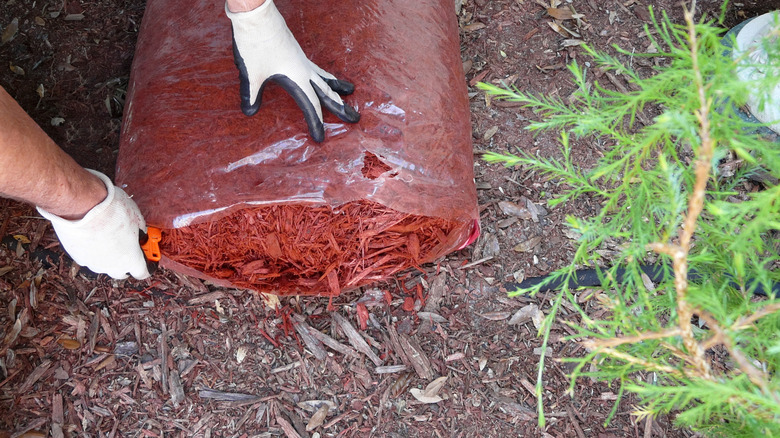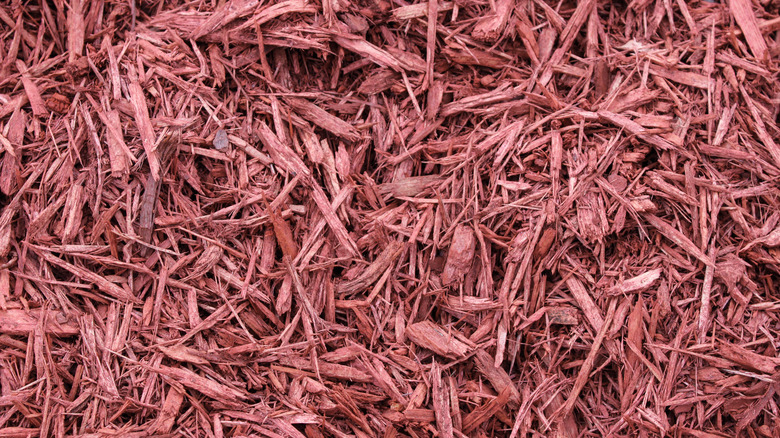What To Consider Before Using Cypress Mulch In Your Yard
There are many reasons why it is important to mulch your garden. A layer of mulch can help keep your soil moist, insulate your plants, prevent weeds, as well as add nutrients back into the soil as it breaks down. However, there are a lot of different types of mulch out there and one of the biggest mulching mistakes you can make is to choose the wrong one for your yard. While each type of mulch has its own advantages and disadvantages, there are a few things you should consider before using cypress mulch in your garden.
Cypress mulch, made from the aromatic cypress tree which is native to the American South, is a popular mulch choice because it is cheaper than most hardwood mulches, but still has that hardwood mulch appearance. This type of wood mulch is also resistant to rot and is good at insulating the soil, making it a popular choice for gardeners who want the benefits and manicured look of a hardwood mulch on a budget.
However, cypress mulch also comes with some downsides — namely that the harvesting of the cypress wood used to make the mulch is bad for the environment. The reason for this is because cypress trees only grow in certain climates in the United States and the demand for cypress mulch has caused more and more trees to be cut down in order to meet production. This has had a negative effect on wetland ecosystems in Southern states like Louisiana and Florida where old growth cypress forests once flourished and were known to help protect the coast from hurricane storm surge.
Cypress mulch might also be bad for your garden
On top of the production of cypress mulch not being sustainable or good for the environment, using the mulch in your garden may also have negative effects on your plants. This is because cypress mulch is a little acidic — so, when it breaks down, it can cause your soil to become more acidic. This is not good for the plants that need to grow in a more neutral soil. On top of this, cypress mulch can sometimes become so dry that it repels water and prevents it from soaking into the soil and nourishing your garden. Cypress mulch is also often made of smaller pieces compared to hardwood mulches (like pine) and can be more easily washed away in a rainstorm.
When it comes to how often you need to refresh the mulch in your garden, cypress mulch also breaks down faster than hardwood mulch, lasting around two to three years instead of three to five years like cedar. This means that despite saving you money up front, if you do decide to go with cypress mulch in your garden instead of hardwood, you will probably have to refresh your mulch sooner and will end up spending just as much money (if not more) in the long run.

